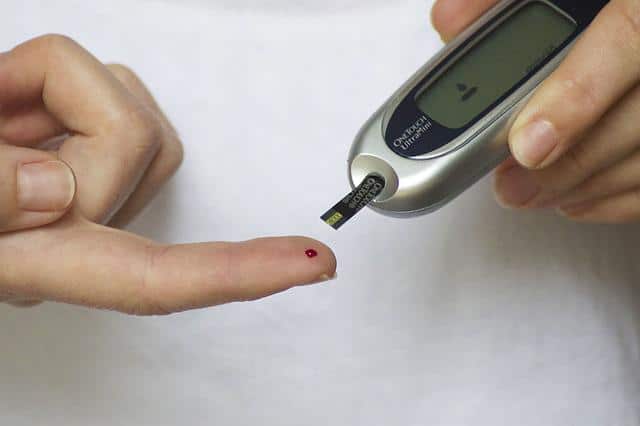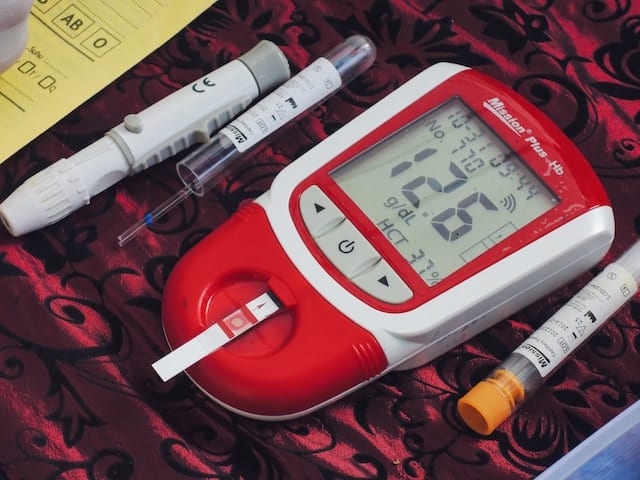12 Ways to Maintain Healthy Blood Sugar Levels
Diabetes is a chronic or long-term health condition that affects people worldwide. The number of pre-diabetics and diabetics is constantly increasing due to a variety of factors, particularly in this modern era. It can be challenging to keep your blood sugar levels within the recommended healthy range. This is because a variety of factors can cause fluctuations in your blood sugar levels.
Diabetes management requires being educated about how blood glucose levels change. To avoid high blood sugar levels (hyperglycemia) or low blood sugar levels (hypoglycemia), you should understand what causes your blood sugar levels to spike and fall. I’ve compiled a list of several things you can do to manage your diabetes. Keeping your blood sugar at healthy levels is a top priority.
Relax and Manage Stress
Stress management is important for everyone’s health, but it’s especially important if you have type 2 diabetes. Because the way your body reacts to stress may increase your risk of diabetes complications. Stress causes an increase in the hormone cortisol. An increase in cortisol causes your body to produce more glucose and fat, which can impair blood sugar control. Some people may use food to cope with stress. Cortisol can increase appetite, which, depending on what you eat, can also cause a spike in blood sugar. It is recommended that you relieve stress by engaging in relaxing activities such as meditation and mindfulness practice.
Limit Your Intake of Simple Carbohydrates
Because of their simple chemical structure, simple carbohydrates are easily and quickly utilized for energy by the body, often resulting in a faster rise in blood sugar and insulin secretion from the pancreas, which can have negative health effects. Cake, candies, and other refined sugar products are examples of simple carbohydrates. Complex carbohydrates are healthier because they take your body longer to digest. They provide you with consistent energy and fiber. Oats, sweet potatoes, and whole wheat bread are examples of complex carbohydrates.
Quit Smoking
Diabetes is challenging to manage, and smoking can make it even harder. Nicotine raises blood sugar levels and makes them more complicated to manage. People with diabetes who smoke frequently require higher insulin doses to keep their blood sugar levels close to a healthy level. Insulin allows blood sugar to enter cells, but nicotine changes cells so that they do not respond to insulin, causing blood glucose levels to rise. Cigarette chemical compounds damage your body’s cells and cause inflammation. This also leads cells to stop responding to insulin.
Did you know People with diabetes who smoke frequently require higher insulin doses to keep their blood sugar levels close to a healthy level. Share on XLose The Excess Body Weight
Excess body weight is linked to an increased risk of cardiometabolic complications. These are major causes of morbidity and mortality in people with type 2 diabetes. Extra weight around your waist means fat can accumulate around your organs, such as your liver and pancreas, causing insulin resistance. So losing excess weight, particularly in the abdominal area (visceral fat), may help your body respond better to insulin produced by your body or insulin injections.
Stay Hydrated Throughout The Day
Drinking water increases blood volume, which lowers the concentration of glucose in the bloodstream, thereby lowering blood glucose levels. Keeping your body hydrated by drinking water on a regular basis helps to keep your blood sugar levels within a more normal range. Furthermore, your body is constantly working, using your kidneys to filter your blood in order to remove toxic compounds and lower your blood glucose levels. When your blood sugar levels are high, your kidneys work even harder. Also, kidneys filter your blood more frequently, reducing water from your body as they do so. It is vital to drink more water to help replenish this fluid and maintain normal fluid balance in your body.
Get Deep and Restorative Sleep
In people with diabetes and prediabetes, getting less restorative slow-wave sleep has been linked to high blood sugar levels. Sleep deprivation not only raises blood sugar levels in people who already have diabetes, but it also increases the risk of developing insulin resistance. Sleep deprivation increases ghrelin, the hunger hormone, while decreasing leptin, the hormone that makes us feel full. People who sleep poorly may be more likely to seek relief in foods that raise blood glucose levels and put them at risk of obesity, which is a risk factor for diabetes, to compensate for lower energy levels.
Exercise Regularly
Being active and exercising regularly makes your body more sensitive to insulin if you have diabetes. Insulin is a hormone that allows cells in your body to use blood sugar for energy, which aids in diabetes management. Physical activity also helps in blood sugar control and reduces your risk of heart disease and nerve damage. It is quite simple; simply keep moving and avoid being sedentary. Brisk walking, swimming, and dancing are examples of moderate-intensity physical activities. You can also keep your body active by doing housework, mowing the lawn, and taking the stairs rather than the elevator.
Add Some Fenugreek Seeds To Your Diet
Fenugreek seeds are a good source in soluble fiber, which helps lower blood sugar by slowing carbohydrate digestion and absorption. By lowering blood glucose levels and improving glucose tolerance, fenugreek seeds can alleviate the majority of metabolic symptoms associated with both type 1 and type 2 diabetes in humans.
Eat More Magnesium Rich Food
Consuming magnesium-rich foods may lower the risk of developing type 2 diabetes. Furthermore, diabetics are more likely to be magnesium deficient than non-diabetics. Magnesium deficiency has been linked to insulin resistance, which is crucial to type 2 diabetes development. On the other hand, increasing your magnesium intake has been shown to potentially lower your risk of developing diabetes. Start incorporating magnesium-rich foods into your diet, such as dark leafy greens, sunflower seeds, sweet potatoes, beans, and whole grains to keep your blood sugar at a healthy level.
Increasing your magnesium intake has been shown to potentially lower your risk of developing diabetes. Share on XEat More Chromium Rich Food
Chromium helps your body break down protein, carbohydrates, and fats. Also, chromium is believed to enhance insulin sensitivity in type 2 diabetics. Furthermore, chromium improves the response of your cells to the hormone insulin, which your body requires to regulate blood sugar levels. As a result, people with type 2 diabetes might need to increase their intake of chromium-rich foods such as orange juice, beef, green beans, and apples.
Watch Your Alcohol Consumption
Pancreatitis can be caused by drinking too much alcohol. Pancreatitis is a chronic inflammation of the pancreas that can impair insulin secretion and possibly lead to diabetes. Drinking alcohol may cause your blood glucose levels to rise or fall if you have diabetes. It is also worth noting that alcoholic beverages are high in calories. If you want to drink, do so in moderation and only when your diabetes and blood sugar levels are under control.
See Your Physician and Have a Regular Check Up
Regular check-ups help to keep your blood glucose at a level that will lower your risk of complications if you have type 2 diabetes. Furthermore, some people will have no symptoms but may have diabetes risk factors and should be tested. Testing allows doctors to diagnose diabetes earlier and work with patients to manage diabetes and prevent complications. Testing also allows doctors to diagnose prediabetes and prevent it from progressing to type 2 diabetes. Regular testing and check-ups with your doctor are critical if you want to manage or prevent diabetes.
Whether you are diabetic, pre-diabetic, or simply want to take control of your health, knowing how to keep your blood sugar at a healthy level is essential. Poor blood sugar control affects the entire body and can lead to a variety of chronic diseases if not properly managed. I hope this article has helped you understand how to control your blood sugar levels with simple lifestyle changes.
Article by The Healthy Taste







